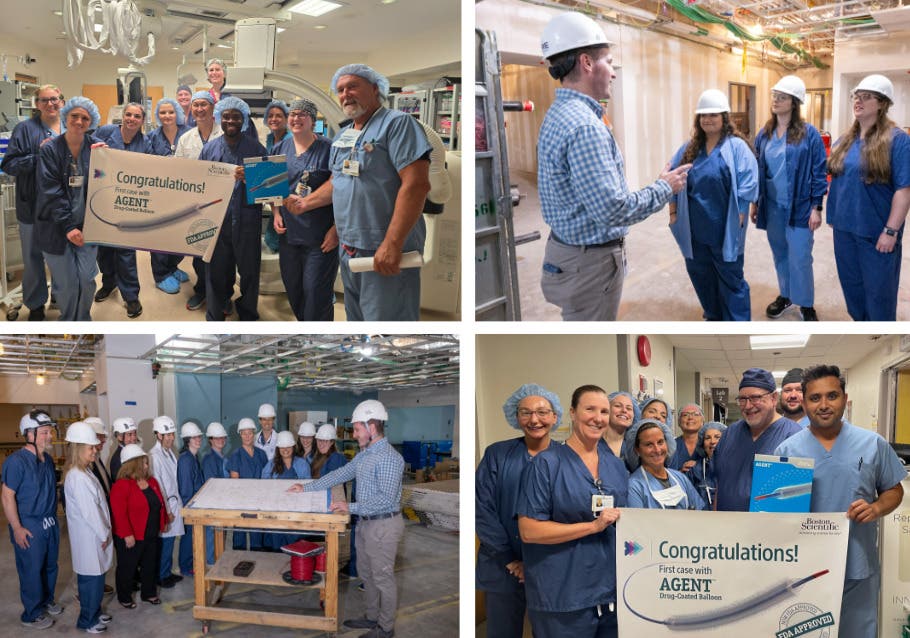Asbury Park, NJ|Local Classified|Announcement|
Jersey Shore University Medical Center Providing Patients First Revisional, In-Stent Heart Treatment

Pictured are the cardiac teams who performed the first AGENT DCB procedures and cardiovascular teams touring the cardiovascular services suite construction site.
Heart care experts at Hackensack Meridian Jersey Shore University Medical Center (JSUMC) are now providing patients with the AGENTTM Drug-Coated Balloon (DCB), designed to treat coronary in-stent restenosis (ISR) in patients with coronary artery disease. Coronary arteries supply blood to the heart muscle and wrap around the outside of the heart. Following proper preparation to re-open a previously stented artery that has re-narrowed due to plaque or scar tissue, the device is inserted and transfers a therapeutic dose of paclitaxel to the artery wall to help prevent ISR reoccurrence.
With its approval by the U.S. FDA in 2024, it is the first drug-coated coronary balloon in the U.S. and provides a dedicated treatment option for ISR. AGENT DCB is also commercially available in many international markets and has been used to treat more than 100,000 patients globally.
“We are pleased to have performed the first procedure in New Jersey using AGENT DCB to treat coronary ISR, an approach that enables us to help prevent reoccurrence of this challenging condition, and without leaving behind another layer of permanent metal implants,” said Matthew Saybolt, M.D., FACC, medical director, Structural Heart Disease Program, JSUMC. “While drug-eluting stents used to treat blocked coronary arteries provide good results for many patients, ISR may still occur. In this condition, a previously stented artery becomes re-narrowed or blocked by scar tissue or plaque.” ISR accounts for 10 percent of all percutaneous coronary interventions in the U.S. Patients with ISR may experience chest pain, shortness of breath, nausea, weakness, irregular or fast heartbeat and sweating.
“We provide our academic medical center’s expert clinicians, like those on our cardiovascular teams, with the latest technologies so that they can continue to provide the best care to all our patients. I’m glad we are able to provide AGENT DCB to the community we serve,” said Vito Buccellato, MPA, LNHA, president and chief hospital executive, JSUMC. Traditional therapies used to treat ISR in the U.S. have included placing additional layers of metal stents, uncoated balloon angioplasty and radiation, all of which may not provide ideal outcomes in some cases.
“Monmouth and Ocean county residents are becoming increasingly aware of, and are receiving, the world-class care provided by Jersey Shore’s cardiovascular experts. Our program continues to grow as more of our neighbors select the academic medical center to receive exemplary health care,” said Kenneth N. Sable, M.D., MBA, FACEP, regional president, Southern Market, Hackensack Meridian Health.
Early this year, JSUMC announced a $45 million construction project to create a new, dedicated cardiovascular services suite, including 10 advanced, mixed-use interventional, electrophysiologic, and structural heart disease procedure rooms to meet the community’s growing needs. The project is expected to be completed late 2024 and, when open, heart care devices like the AGENT DCB will be provided to patients there.
For more information about JSUMC’s cardiovascular services, visit www.HMHHasHeart.com. To schedule a CT Calcium Scoring scan or AngioScreen testing, which provide early detection of heart disease risk, or for a free physician referral, call 844-HMH-WELL.